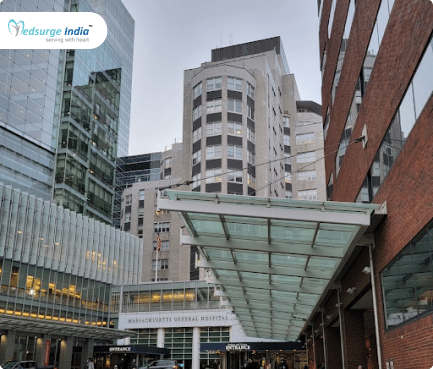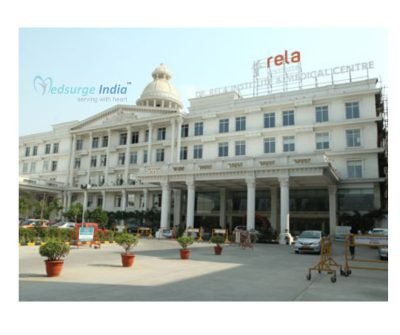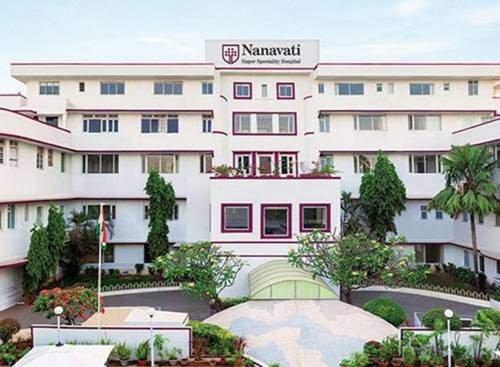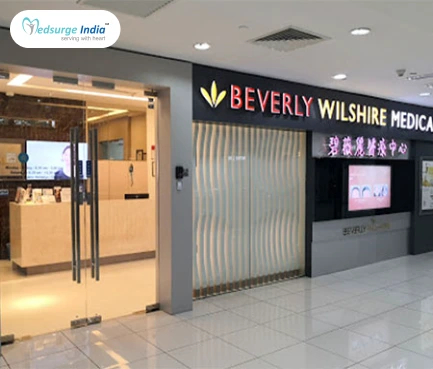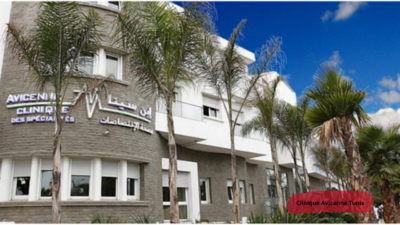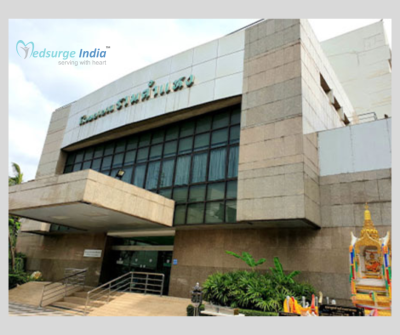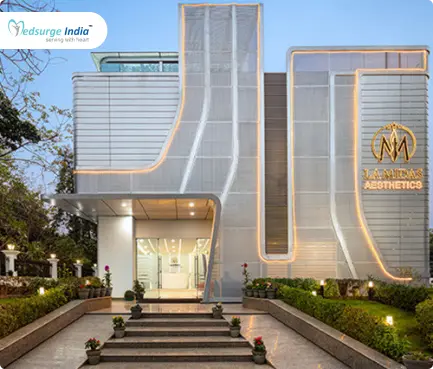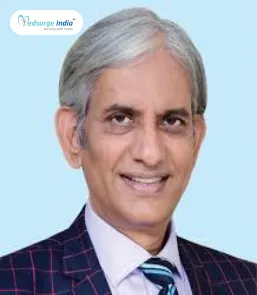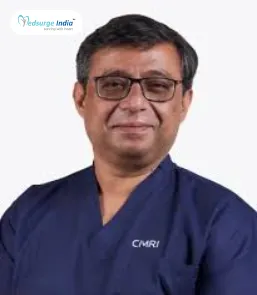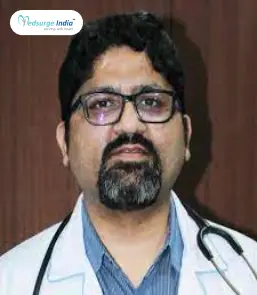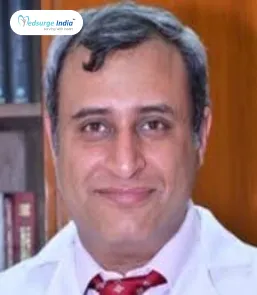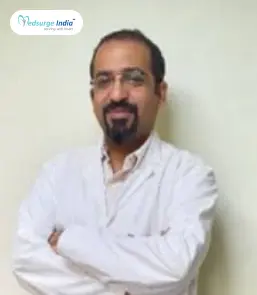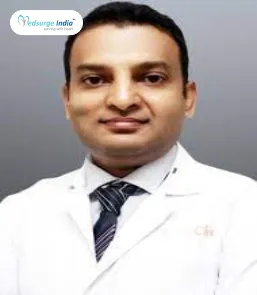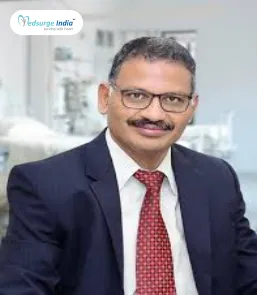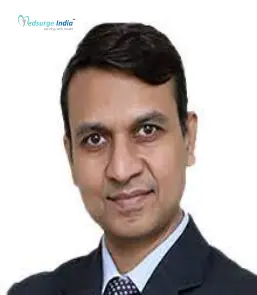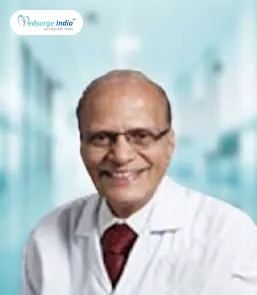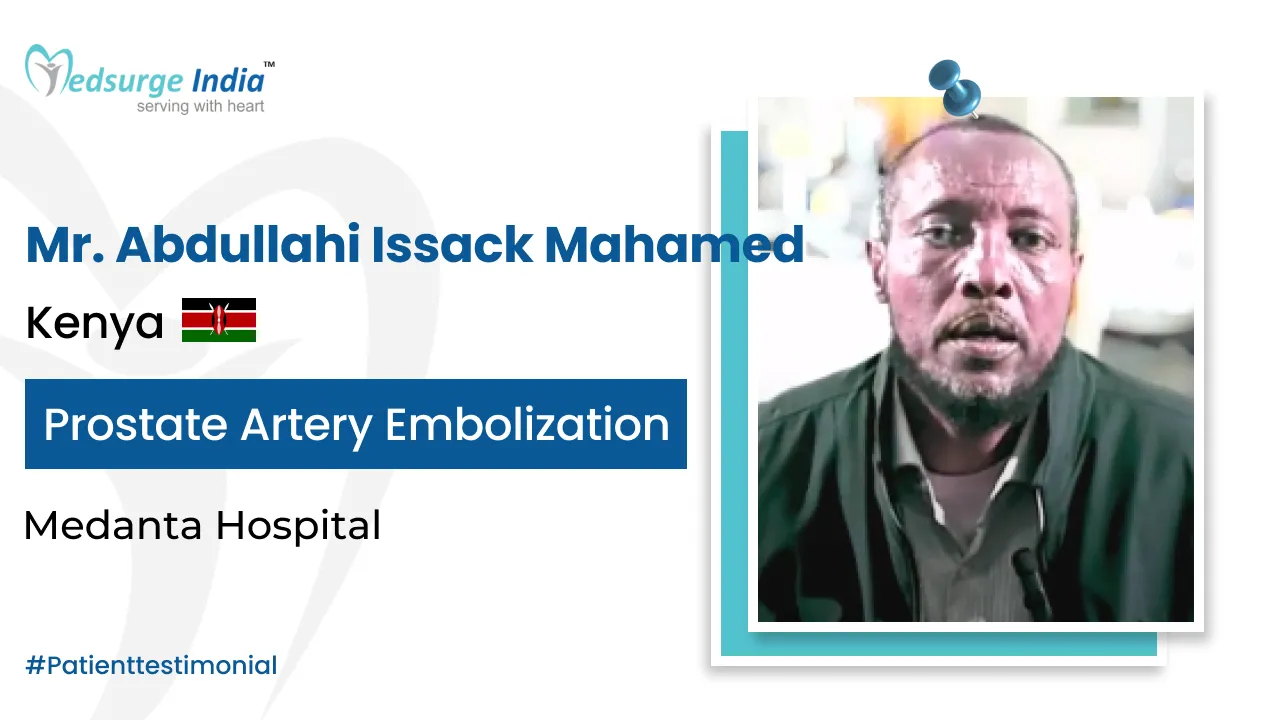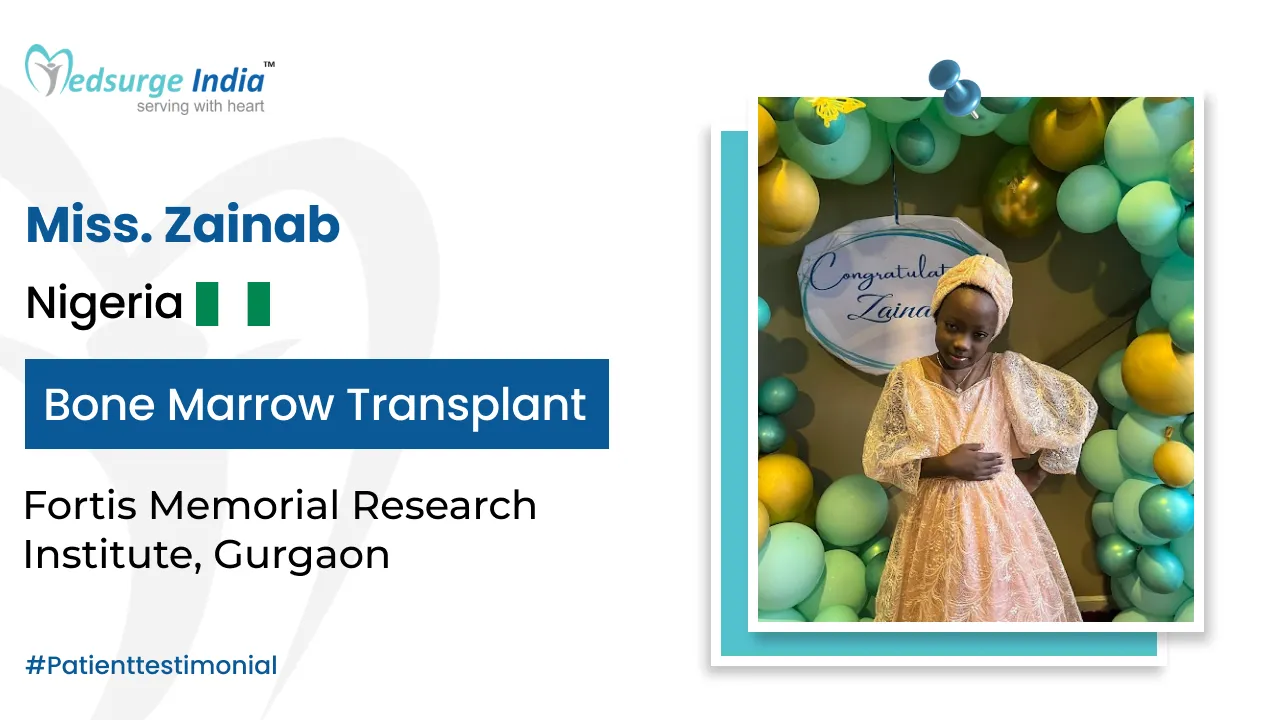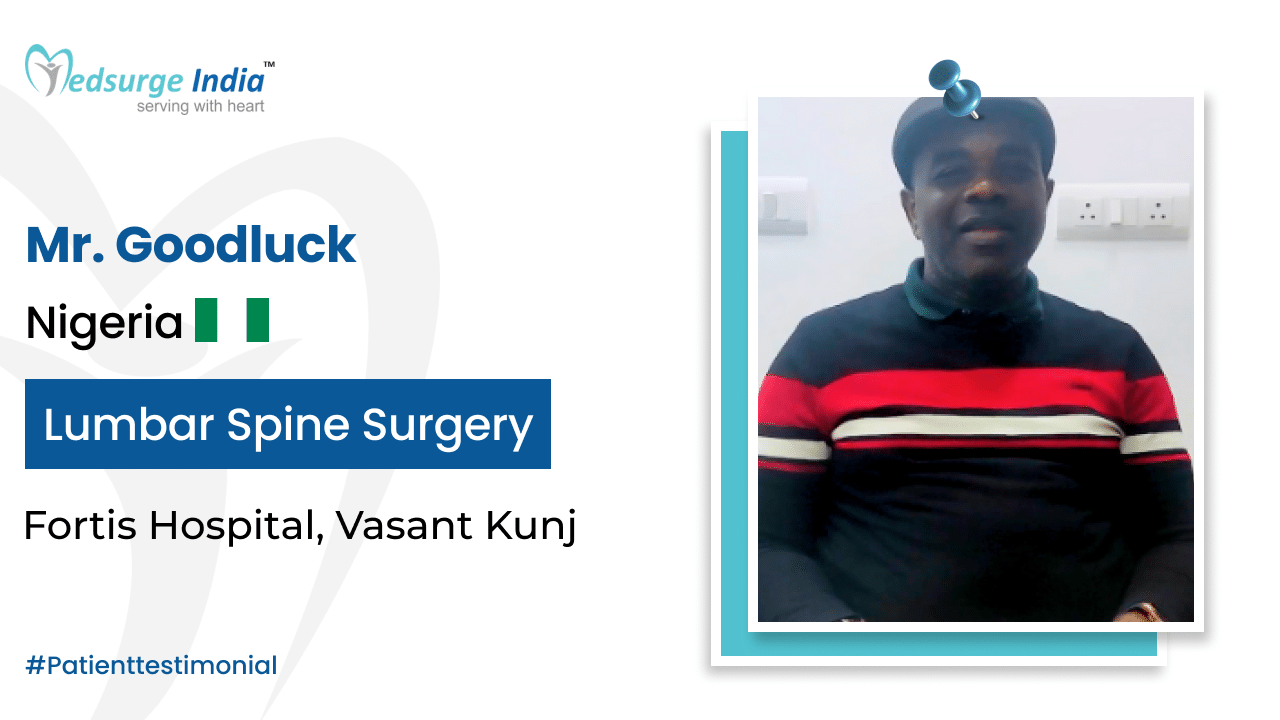
Gastroenterology surgery mainly includes surgical procedures done on the digestive system’s organs and channels. The esophagus, liver, spleen, gall bladder, rectum, colon, and anus are all repaired, removed, and resectioned during this procedure. Gerd disease, gastric ulcers, stomach ulcers, Crohn’s disease, and other inflammatory disorders are treated by gastroenterology surgery in India.
Gastroenterology surgery cost in India is quite more affordable than in the United States or any other Western country. In India get assistance with early detection, diagnosis, and treatment of gastrointestinal diseases with the help of expert doctors and assisting staff, customized medical care, treatment at cutting-edge medical facilities, and the use of the latest world-class technology, etc.
What Is Gastroenterology Surgery?
Gastroenterology is a branch of medicine that deals with digestive disorders. The diagnosis and treatment of diseases of the esophagus, stomach, small intestine, large intestine (colon), liver, gallbladder, and pancreas are the focus of gastroenterology. This medical profession, like Cardiology, which deals with heart ailments, is actually a specialization of Internal Medicine.
Gastroenterology surgery in India mainly includes various surgical processes performed on multiple organs and channels of the digestive system. The esophagus, liver, spleen, gall bladder, rectum, colon, and anus are all repaired, removed, and resectioned during this procedure. Gerd disease, gastric ulcers, stomach ulcers, Crohn’s disease, and other inflammatory disorders are treated by gastroenterology surgery.
A gastroenterologist is a professional who has received extensive training in internal medicine before specializing in the diagnosis and treatment of digestive diseases. Frequently, a Gastroenterologist is called in cases of abdominal pain, rectal bleeding, or change in bowel habits when the diagnosis is unclear or where specialized diagnostic procedures are necessary. The Indian Board of Internal Medicine certifies most gastroenterologists, who then pursue additional training in the field. A person must have completed four years of college, four years of medical school, and a degree in medicine to be eligible for Board certification. Then he or she must complete four to six years of internal medicine and gastroenterology specialized training.
What Conditions Do Gastroenterologists Treat?
When the diagnosis is unclear or specialized diagnostic techniques are required, a gastroenterologist is frequently consulted. A gastroenterologist can help with a variety of conditions, including but not limited to:
- Abdominal Pain
- Abnormal Xray Findings
- Colon Cancer
- Colon Polyps
- Colon Screening Exams
- Constipation
- Crohn’s Disease
- Diarrhea
- Difficulty Swallowing
- Diverticulosis
- Esophageal Reflux
- Gastritis
- GERD
- Heartburn
- Hemorrhoids
- Hepatitis
- Hiatal Hernia
- Indigestion
- Irritable Bowel Syndrome
- Jaundice
- Liver Disease
- Malabsorption
- Nausea Diarrhea
- Post-Operative Colon Tests
- Rectal Bleeding
- Spastic Colon
- Ulcers
- Ulcerative Colitis
- Unexplained Weight Loss
- Vomiting
Gastroenterology Surgery Cost in India
On average, Gastroenterology Surgery Cost in India starts from USD 2,500. The price of the treatment will vary depending on the type of procedure you choose for Gastroenterology Surgery in India.
Estimated prices depending on different cities in India
| Cities | Starting Price |
| Delhi | USD 2,500 |
| Gurgaon | USD 2,500 |
| Noida | USD 2,500 |
| Mumbai | USD 2,800 |
| Hyderabad | USD 2,500 |
| Chennai | USD 2,500 |
| Kolkata | USD 2,500 |
| Bangalore | USD 2,800 |
Please keep in mind that prices of Gastroenterology Surgery Cost in India will vary depending on various factors.
Factors That Can Affect Gastroenterology Surgery Cost in India
The standard and grade of medical care and amenities are comparable to those of the most prestigious healthcare facilities in the world, even when the expense of lodging, meals, and transportation is taken out. The following here are some variables that can affect Gastroenterology Surgery Cost in India:
- Medication costs.
- Duration of treatment.
- Geographical location.
- Hospitalization expenses.
- Government policies and subsidies.
- Medical tourism packages.
- Hospital reputation and infrastructure.
- The expertise and experience of medical professionals.
- The type and frequency of diagnostic procedures.
- The choice of treatment modality.
Under the direction of the most skilled physicians, Medsurge India provides patients with the lowest Gastroenterology Surgery Cost in India.
When Should a Gastroenterologist be Consulted?
If you have any of the following symptoms, your primary care physician may send you to a gastroenterologist:
- Having blood in your feces for no apparent reason
- Facing unexplained swallowing problems
- Experiencing severe stomach pain
- Having digestive problems, such as constipation or diarrhea on a regular basis
- If you have acid reflux or heartburn on a regular basis
You should also see a gastroenterologist for preventive treatment if you are over the age of 50, as you may be at an elevated risk of colon cancer.
If you are in this age bracket, you should have your eyes checked on a regular basis. If you have a family member who has been diagnosed with colon cancer, talk to your doctor about when you should start having screenings.
Get Free Cost Estimation
Procedure
What Are the Common Types of Gastrointestinal Surgical Procedures?
A cancerous or noncancerous growth or a damaged section of the body, such as the intestine, may be removed through surgery. It can also be utilized to treat conditions like hernias (a hole or weak spot in the wall of the abdomen). The digestive system is screened and diagnosed via minor invasive procedures for types of gastroenterology surgery:
- Appendicitis
- Diverticular Disease
- Gastroesophageal reflux disease (GERD) and hiatal hernias
- Colon Cancer and other gastrointestinal cancers
- Gall Bladder disease
- Hernia
- Rectal Prolapse
- Inflammatory Bowel Disease (IBD)
- Weight Loss (bariatric surgery)
Endoscopy is a surgical treatment that is used to screen and diagnose digestive system problems. To see within the body, the doctor inserts a long, thin tube with a tiny camera. The scope is passed through the oesophagus if the problem is with the stomach or oesophagus. The doctor inserts a scope via the anus into the intestine to look for colon cancer or other bowel disorders.
Nonsurgical procedures are also performed by gastroenterologists. This can include processes like:
- Upper endoscopy
- Endoscopic ultrasound
- Colonoscopies
- Sigmoidoscopy
- Liver Biopsy
- Capsule Endoscopy
- Feeding Tube insertion
What Are the Benefits, Side effects, and Recovery of Gastroenterology Surgery?
Side effects
Any surgery carries a number of risks, including:
- Infection
- Pain
- Bleeding and blood clots
- Damage to other body organs
- Reaction to Anesthesia
Benefits
The removal of a tumor or a damaged body part, as well as the healing of damaged, can save a person’s life. Surgery can also enhance a person’s quality of life if other treatments, such as medicine or dietary modifications, have failed to help.
Colonoscopy is a modest surgical treatment with significant advantages: it can detect colon cancer early enough for it to be cured. It’s critical to receive the colon cancer screening that is recommended.
Recovery
The duration of your recovery will be determined by the type of surgery you had and how invasive it was. You can return to your usual activities immediately soon after a few basic operations, such as a colonoscopy. With more invasive surgeries, you may require additional time to heal and assist with pain management. Enquire with your doctor about what to expect during your surgery recovery.
Role of Medication
Gastrointestinal Surgery is the discipline of medicine that deals with the treatment of disease, injury, and deformity of the stomach and intestines through physical operation or manipulation.
The following medications are in some way related to or used to treat this disease in some way:
The active ingredient in OTC drugs like Kaopectate® and Pepto-BismolTM, bismuth subsalicylate, preserves the lining of your stomach. Ulcers, upset stomach, and diarrhea are all treated with bismuth subsalicylate. Cyclizine, dimenhydrinate, diphenhydramine, and meclizine are some of the other medications used in the treatment.
Suggestion
Gastroenterologists are experts in digestive problems like IBS, ulcers, polyps, and chronic heartburn. These doctors have completed three years of medical school and five to six years of extra training. They don’t usually undertake surgeries, but they do perform endoscopic treatments that can help them diagnose and treat a variety of GI problems.
If your primary care physician notices something is wrong with your digestion, if you have stomach pain, or if certain blood tests show increased levels, he or she will likely refer you to a gastroenterologist.
The Most Important Frequently Asked Questions
Q: What Are the Most Common Gastrointestinal Procedures?
- Surgical treatment for gastrointestinal cancer.
- Hernia surgery
- Esophagus and Foregut Surgery.
- Gallbladder surgery
- Surgery on the liver and bile ducts.
- Pancreas Surgery
Q: What Is the Name of the Procedure for Abdominal Surgery?
A: laparotomy is a surgical procedure that involves cutting into the abdominal cavity.
Q: What Is the Procedure for Abdominal Surgery?
A: Laparotomies and laparoscopic procedures are the two types of abdominal surgery. Laparotomies are big operations that necessitate a wide incision in the patient’s belly as well as a lengthier recuperation period. The incision formed during laparoscopic surgery is substantially smaller.
Q: How Long Does Gastrointestinal Surgery Take?
A: Surgery to resect the bowel normally takes 1 to 4 hours. The average duration of stay in the hospital is 5 to 7 days. If difficulties emerge or if a substantial portion of your intestine was removed, your doctor may decide to keep you longer.
Q: What Is the Name of the Procedure That Removes the Intestines?
A: A colectomy is a surgical surgery that involves the removal of all or part of the colon. Your colon is a lengthy tube-like organ at the end of your digestive tract that is a portion of your big intestine. A colectomy may be required to cure or prevent diseases and disorders of the colon.
Q: Is Bowel Resection Surgery Painful?
A: Following bowel surgery, you will most likely have intermittent pain for the next few days. It’s possible that you will experience bowel cramps, and your cut (incision) will sting. It’s also possible that you’re suffering from influenza (flu). You may feel weary and queasy and have a mild fever.
Top Hospitals for Gastroenterology Surgery in India
Top Doctors for Gastroenterology
Dr. Somnath Mukherjee
Consultant
Experience: 25 years of experience
Calcutta Medical Research Institute, Kolkata
Kolkata, India
Dr. Abhishek Jain
Experience: 17+ years of experience
NH MMI Narayana Superspeciality Hospital, Lalpur, Raipur
Raipur, India
Dr. Rangarajan Kasturi
Consultant
Experience: 11 years of experience
NHS Trust, London
Bangalore, India
Dr. Saleem Naik
Senior Consultant
Experience: 17 years of experience
Millennium Cancer Center, Gurgaon
Gurgaon, India
Dr. Deepak Govil
Senior Consultant , MBBS, MS
Experience: 34 years of experience
Indraprastha Apollo Hospital, New Delhi
New Delhi, India
Dr. Venugopal Pareek
Consultant
Experience: 22 years of experience
Care Hospitals, Banjara Hills, Hyderabad
Hyderabad, India
Dr. Abhishek Kathuria
Associate Consultant
Experience: 10 years of experience
Medanta – The Medicity, Gurgaon
Gurgaon, India
Dr. (Prof) M. P. Sharma
Head of Department
Experience: 54 years of experience
Medeor Hospital, Qutab, New Delhi
NewDelhi, India
Dr. Adarsh M. Patil
Senior Consultant
Experience: 17 years of experience
Apollo Spectra Hospital, Bangalore
Bangalore, India
Dr. Sundeep Jain
Director
Experience: 25 years of experience
Fortis Escorts Hospital Jaipur
Jaipur, India

